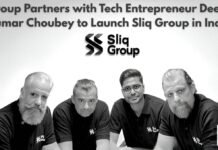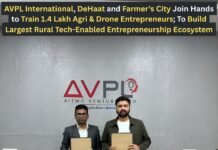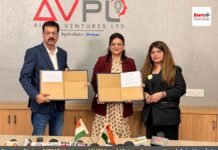Mumbai, India – September 2, 2025: Global venture capital powerhouse 500 Global has announced a strategic partnership with dcamp, South Korea’s leading entrepreneurship foundation, creating a direct pathway for Korean startups to accelerate their growth in the US market. This collaboration represents a significant development in cross-border startup ecosystem development and international market expansion strategies.
Strategic Alliance Framework
The partnership, formalized during a signing ceremony at 500 Global’s Palo Alto headquarters on August 28, 2025, brings together two influential organizations with complementary strengths in startup development and market access.
Partnership Objectives
Primary Goals:
- Identify Korean startups ready for international expansion and investment
- Facilitate US market entry through structured acceleration programs
- Connect Korean entrepreneurs with Silicon Valley’s extensive network and resources
- Bridge cultural and business practice gaps between Korean and American markets
Implementation Strategy: Selected Korean startups will gain direct access to the prestigious 500 Global Flagship Accelerator program in Silicon Valley, providing comprehensive market understanding, local ecosystem connections, and growth opportunity development.
Leadership Perspectives on Market Impact
Younghoon Park, CEO of dcamp, emphasized the transformative potential of the alliance: “Through this strategic partnership, we aim to bridge the best of Korea’s entrepreneurial spirit with Silicon Valley’s renowned ecosystem. Our mission at dcamp has always been to empower Korean startups with the right tools and opportunities. Partnering with 500 Global is a transformative step forward, equipping our entrepreneurs to excel on the global stage.”
Christine Tsai, CEO and Founding Partner of 500 Global, highlighted the global talent recognition aspect: “Our partnership with dcamp underscores 500 Global’s long-standing conviction that ambitious, talented founders exist all around the world. Korea’s vibrant startup ecosystem is positioned to make a global impact, and we’re excited to accelerate this potential by connecting Korean founders to the opportunities, resources, and networks of Silicon Valley and beyond.”
Success Story: CardMonster Case Study
The partnership builds on 500 Global’s established Korea presence since 2012, with notable success stories demonstrating the model’s effectiveness.
CardMonster Success Trajectory
CardMonster, an AI-powered gaming studio specializing in connecting major intellectual properties with the tabletop gaming market, exemplifies the partnership’s potential impact:
Investment Journey:
- Initial seed investment from 500 Korea fund
- Participated in US Immersion Trek program
- Connected with strategic mentors from Stripe and AI hyperscalers
- Scheduled to present at 500 Global’s Flagship Demo Day in San Francisco on October 7, 2025
Strategic Value Creation: The CardMonster example demonstrates how Korean startups can leverage both local and international resources to scale globally while maintaining their innovative edge in specialized markets.
500 Global: Venture Capital Leadership Profile
Investment Portfolio and Market Presence
Key Performance Indicators:
- Assets Under Management: $2.1 billion across multiple investment stages
- Portfolio Scale: Over 5,000 founders supported across 3,000+ companies
- Global Reach: Operations spanning 80+ countries worldwide
- Unicorn Success: 35+ companies valued above $1 billion
- High-Growth Companies: 150+ companies valued above $100 million
Korea-Specific Investment Focus
Dedicated Korean Operations:
- Three specialized funds focused on Korean market opportunities
- 80+ portfolio companies across diverse sectors
- Local Seoul-based programs and initiatives
- Comprehensive market understanding developed over 12+ years
Global Team Structure:
- 175+ team members across 25+ countries
- Combined experience as entrepreneurs, investors, and operators
- Leadership background from leading global technology companies
- Multi-cultural approach to cross-border expansion challenges
dcamp: Korea’s Premier Startup Foundation
Organizational Background and Mission
Foundation Structure:
- Established under the Banks Foundation for Young Entrepreneurs
- Funded through donations from 19 Korean financial institutions
- Operating since 2012 with consistent early-stage startup focus
- “Startup Growth Partner” organizational philosophy
dcamp 2.0: Strategic Evolution
Program Transformation (2024 Launch):
- Renewed strategy targeting pre-Series A and Series A stage companies
- Maximum 10 startups selected quarterly for intensive support
- Sector focus on ICT, deep-tech, and climate-tech innovations
- Comprehensive “Death Valley” phase navigation support
Support Infrastructure:
- Equity investment and fund investment access
- Dedicated office space and co-working facilities
- Customized educational programs and mentorship
- Talent recruitment and networking facilitation
- Promotional support and marketing assistance
- Global expansion strategy development
Market Analysis: Korea-US Startup Ecosystem Bridge
Korean Startup Ecosystem Strengths
Technology Innovation Leadership:
- Advanced semiconductor and electronics industries
- Leading gaming and entertainment technology development
- Strong AI and machine learning research capabilities
- Robust telecommunications and 5G infrastructure
- Growing fintech and e-commerce sectors
Cultural and Business Advantages:
- High technological adoption rates among consumers
- Strong work ethic and execution-focused business culture
- Government support for innovation and entrepreneurship
- Significant domestic market for testing and validation
- Export-oriented business mentality
US Market Access Challenges and Solutions
Common Expansion Barriers:
- Cultural and business practice differences
- Regulatory and legal framework navigation
- Local network and partnership development
- Customer acquisition and go-to-market strategy adaptation
- Funding and investment landscape understanding
Partnership Solutions:
- Direct mentorship from successful US-based entrepreneurs
- Structured introduction to US investors and partners
- Cultural bridge-building through experienced advisors
- Market validation assistance and customer development support
- Regulatory guidance and legal framework education
Sector-Specific Growth Opportunities
Technology and Deep-Tech Focus Areas
High-Potential Sectors for Korea-US Expansion:
- Artificial Intelligence and Machine Learning: Korean expertise in hardware-software integration
- Gaming and Entertainment Technology: Strong domestic success translating to global markets
- Fintech and Digital Payments: Advanced mobile payment ecosystem experience
- Clean Technology and Climate Solutions: Government backing and technological innovation
- Healthcare Technology: Aging population driving innovation in medical technology
Market Entry Strategy Framework
Phase 1: Market Assessment and Preparation
- Comprehensive US market analysis and opportunity identification
- Product-market fit validation for American consumers
- Competitive landscape analysis and positioning strategy
- Regulatory requirement assessment and compliance planning
Phase 2: Ecosystem Integration
- Silicon Valley network introduction and relationship building
- Mentor assignment and strategic guidance initiation
- Pilot customer development and early market feedback collection
- Funding strategy development and investor introduction
Phase 3: Scale and Growth Execution
- Full market entry with refined product offerings
- Strategic partnership development and channel expansion
- Follow-on funding rounds and growth capital access
- Team expansion and US operations establishment
Regional Impact and Broader Implications
Asia-Pacific Startup Ecosystem Development
Regional Connectivity Enhancement: The Korea-US bridge model demonstrates potential for broader Asia-Pacific startup ecosystem integration, with implications for:
- Indian Startups: Similar market expansion pathways and strategic partnership models
- Southeast Asian Markets: Cross-regional collaboration and resource sharing
- Japanese Entrepreneurs: Complementary technology strengths and market access needs
- Australian Innovation: Pacific Rim connectivity and market development
Global Venture Capital Evolution
Cross-Border Investment Trends:
- Increasing recognition of distributed global talent and innovation
- Strategic partnership models replacing traditional geographic limitations
- Cultural bridge-building as competitive advantage in international expansion
- Local-global hybrid approaches to startup development and scaling
Program Timeline and Implementation
Immediate Implementation (2025)
Q4 2025 Milestones:
- First cohort of Korean startups entering 500 Global Flagship Accelerator
- CardMonster presentation at October 7 Demo Day in San Francisco
- Initial program feedback and optimization planning
- Success metrics establishment and tracking system implementation
Program Structure:
- Quarterly startup selection cycles aligned with dcamp’s existing processes
- 3-6 month Silicon Valley immersion programs for selected companies
- Ongoing mentorship and support extending beyond formal program completion
- Alumni network development for sustained ecosystem growth
Long-Term Vision (2026-2027)
Expansion Opportunities:
- Program model replication for other Asian markets
- Industry-specific tracks for high-potential sectors
- Advanced-stage company support for Series A and beyond
- Reverse flow programs bringing US startups to Korean markets
Success Metrics and Performance Indicators
Quantitative Measures
Program Effectiveness Tracking:
- Number of Korean startups successfully entering US markets
- Total funding raised by participating companies post-program
- Job creation in both Korean and US operations
- Revenue growth rates for participating companies
- Successful exits and acquisition outcomes
Qualitative Impact Assessment
Ecosystem Development Indicators:
- Cross-cultural competency development among entrepreneurs
- Network strength and relationship quality metrics
- Knowledge transfer effectiveness between markets
- Program alumni success in subsequent ventures
- Broader ecosystem connectivity and collaboration increases
Future Outlook and Strategic Implications
Market Expansion Potential
The 500 Global-dcamp partnership represents more than a bilateral agreement; it establishes a framework for systematic cross-border startup development that could influence global venture capital and entrepreneurship support models.
Strategic Significance:
- Demonstration of systematic approach to international market expansion
- Model for other venture capital firms seeking global deal flow
- Framework for government and foundation-backed entrepreneurship initiatives
- Template for cultural bridge-building in business development
Scalability Opportunities:
- Additional Asian market integration potential
- Industry vertical specialization possibilities
- Advanced-stage company support expansion
- Reverse market entry program development
About the Organizations
500 Global Company Profile
500 Global operates as a multi-stage venture capital firm focusing on fast-growing technology companies in markets where innovation and capital can drive significant economic impact. The firm’s global approach combines local market expertise with international scaling capabilities, supported by a diverse team with entrepreneurial, investment, and operational experience from leading technology companies worldwide.
dcamp Foundation Profile
dcamp functions as South Korea’s premier startup growth platform, providing comprehensive support infrastructure for early-stage entrepreneurs. The organization’s evolution to dcamp 2.0 reflects its commitment to addressing critical growth challenges faced by startups transitioning from early validation to significant scale, with particular expertise in ICT, deep-tech, and climate-tech sectors.




